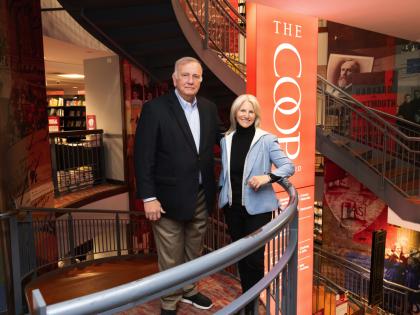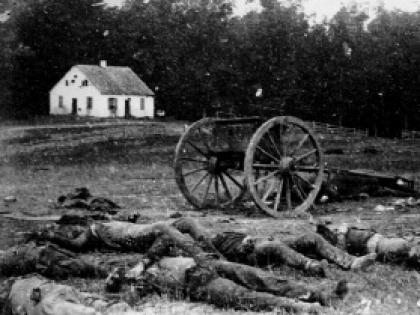What Terrorists Want: Understanding the Enemy, Containing the Threat, by Louise Richardson, Ph.D. ’89, executive dean of the Radcliffe Institute (Random House, $25.95). “We should never have declared a global war on terrorism, knowing that such a war can never be won,” writes Richardson. “[W]e should pursue the more modest and attainable goal of containing terrorist recruitment and constraining resort to the tactic of terrorism.”
Blithe Tomato, by Mike Madison ’68, Ph.D. ’75 (Heyday Books, $15, paper). Madison runs a small truck farm in California’s Sacramento Valley. In a recent (bad) year, he “worked 362 days out of 365, dawn to dark, for a net farm income of $19,730.” He suggests why a willing person might do that in these well-grown and tasty essays, ranging in topic from gophers to beautiful women, from the perfect tomato to farmers’ market society.
Hooked: Pirates, Poaching, and the Perfect Fish, by G. Bruce Knecht, M.B.A. ’86 (Rodale, $24.95). An enlightening, gripping, nonfiction thriller about illegal fishing, featuring a 4,000-mile chase halfway around Antarctica, and an account of the rise to celebrity of the Patagonian toothfish, a.k.a. Chilean sea bass.
When the Astors Owned New York: Blue Bloods and Grand Hotels in a Gilded Age, by Justin Kaplan ’45, G ’47 (Viking, $24.95). In four generations, the Astors evolved from immigrant rabbit skinners to the most privileged of nobs. A five-star account of squabbling-cousin hoteliers and the pleasure domes they built.
The Lost Men: The Harrowing Saga of Shackleton’s Ross Sea Party, by Kelly Tyler-Lewis, A.L.B. ’89 (Viking, $25.95). When Sir Ernest Shackleton set out on his abortive expedition to trek across Antarctica, he sent a ship, the Aurora, to the opposite side of the continent. The crew’s job was to set up food and fuel depots in a lifeline 1,300 miles long. The Aurora tore free of her moorings in a gale and disappeared, leaving 10 men stranded on Ross Island.
Scatter My Ashes over Havana, by Olga Karman, Ph.D. ’76 (Pureplay Press, $17.95, paper). Now a professor and poet, Karman writes of a Cuban exile’s life in the United States. She was at Harvard during the student rebellion of 1969, when Castro and Guevara were local idols. “You naïve Americans,” she thought, “don’t you realize a whole country can go under? Mine did.”
Whale, by Joe Roman ’85, Ph.D. ’03 (University of Chicago Press, $19.95, paper). From Saint Brendan and his monks, who lighted a fire on a sleeping whale in the belief that it was an island, to today’s kujira eaters in Japanese sushi bars, whales have figured large in human history, the arts, science, and commerce. Roman provides a nontechnical, engagingly illustrated omnium-gatherum of cetacean information. Did you know that a blue whale’s tongue can weigh more than an African elephant? Or that Brendan’s whale, Jasconius, became friendly?







